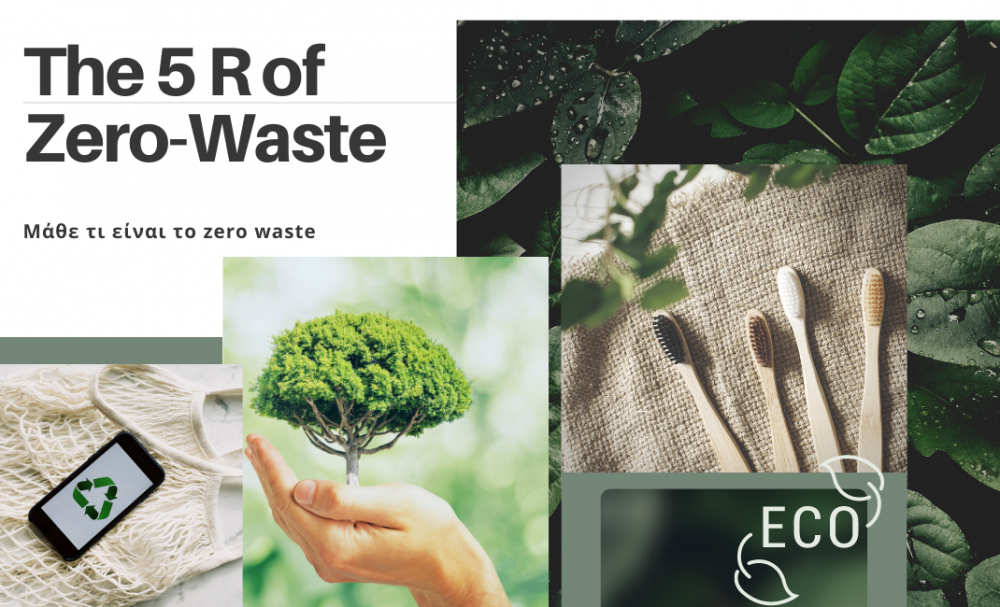REFUSE - REDUCE - REUSE - RECYCLE - ROT
What does Zero Waste mean?
Non-waste generation is an ethical, economical, efficient goal and a vision to guide people to change their lifestyles and daily habits and to imitate sustainable natural cycles, where all discarded materials are designed to be resources for someone else (sustainability).
Zero Waste means the design and management of products and processes for the systematic reduction and elimination of volume as well as the toxicity of waste and materials, the conservation and reuse of all resources, without incineration or landfilling.
Make a change now…
There are things we can all change right away:
- Reusable shopping bags instead of disposable bags
- Water bottle or hermit crab instead of bottled water and bottles
- Our thermos for coffee, instead of a disposable glass in take away.
- Metal, glass or bamboo straw instead of plastic straw
- Bamboo toothbrush instead of plastic toothbrush
- Natural loofah instead of a plastic sponge
- Soap instead of cream soap and shower gel
- More whole foods instead of packaged
- Buy in our own containers as much as possible bulk foods such as legumes, cereals, nuts, rice, herbs, spices
THE 5 R OF ZERO WASTE
REFUSE
We refuse extra promotional gifts, brochures of any kind, free pens, key chains, lighters, etc. small things that are offered to us in our daily life as promotions mainly, either companies, stores, services, etc. Most of the time these items end up directly in the trash, while others, such as pens and key chains, are already in our house - and in fact in abundance.
REDUCE
What is more reasonable and feasible, than to reduce our consumption? We live in a consumer society with direct access to all kinds of goods and we have turned shopping into a hobby or even a cure (shopping thepary!).
In the age of fast fashion, online shopping, cheap imported products and plastic, the average lifespan of the items we buy does not exceed one year while the average western woman has over 50 toiletries. By reducing our consumption, that is, by making only studied and targeted purchases, we significantly help reduce the volume of objects that end up sooner or later in the landfill.
REUSE
The average household in the western world has too many things! It is a good idea to reuse our items, either by giving them a new look or by making something completely new out of them. Of course, all the useful items that are reused, play a very important role in reducing the production of garbage.
Just a few examples of reusable items are cloth shopping bags, reusable water bottles, metal washable straws, the period cup for women.
RECYCLE
It should be obvious, but it is not - what is recycled goes exclusively into the respective recycling bins and is not rubbish! Plastic, glass, paper are recycled and in most areas we can find bins for these materials. This gives precious materials the opportunity to start a new life cycle.
ROT
Composting is the natural recycling of organic materials, where with a natural process the organic residues such as fruit and vegetable peels, become soil again (humus, soil conditioner). 35% of household waste can be composted and now there are household composters that we can even have on the balcony.
In a few weeks, the organic matter turns into soil that we can use in pots and flower beds, or even offer to those who make urban vegetable gardens (and not only). Many municipalities in our country have started composting programs, either with coffee bins for all citizens, or by offering home compost bins for those citizens who express interest.
(Source: www.ecoliving.gr)


